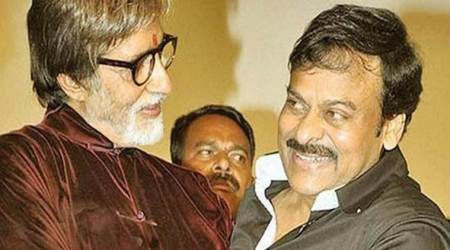 Amitabh Bachchan was present at the press meet for his upcoming television show Kaun Banega Crorepati season 9.
Amitabh Bachchan was present at the press meet for his upcoming television show Kaun Banega Crorepati season 9.
It is well known that Bollywood megastar Amitabh Bachchan prefers to maintain his silence on any social or political subject, unless of course if he has an issue-based film coming up or if the actor is endorsing a government campaign. By either maintaining a no comment stand or gesturing at the journalists to not ask such questions, the veteran actor comes across as unopinionated in public.
So, when he was asked to share his views on the Supreme Court’s historic order deeming triple talaq “unconstitutional”, all the 74-year-old actor could manage to say was that the judgment speaks for itself. “We can’t argue with the law,” said Amitabh Bachchan.
The actor spoke at the launch of the ninth season of Kaun Banega Crorepati. His reply to the triple talaq order came just after he mentioned how it saddens him to see “women facing regressiveness in the country”. The actor even made a mention of his social drama film, Pink, which sensitively dealt with the issue of consent.
“On the show, I get to know stories about young girls, who face resistance at home to study further or work. Like there was this girl, whose father wanted her to just get married, and then she earned Rs 25 lakh on the show and she went back to her father and showed him the cheque. So, it is inspiring to see such girls. I did a film, Pink, where we showed how girls defy norms imposed on them by the society,” remarked Big B.
Meanwhile, rest of the Hindi film industry has been forthcoming about its view on the Supreme Court order. Bachchan’s peers like Hema Malini, Rishi Kapoor and Paresh Rawal have hailed the order calling it a victory for women’s right to dignity and respect.
A five-judge bench of the Supreme Court on Tuesday in a split verdict ruled that the practice of instant triple talaq in the Muslim community is unconstitutional. The bench, headed by Chief Justice of India J S Khehar, set aside the practice by a majority of 3:2.
While CJI Khehar and Justice S Abdul Nazeer upheld the practice of triple talaq, Justices Kurian Joseph, R F Nariman and U U Lalit held that the practice needs to be abolished

